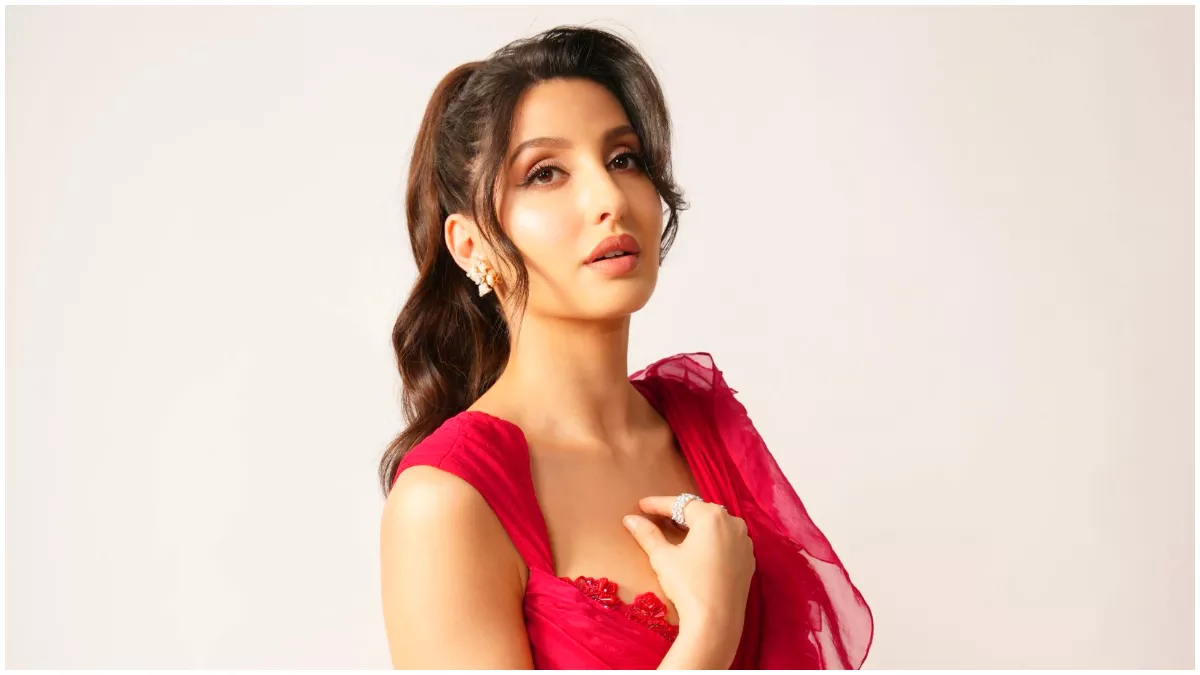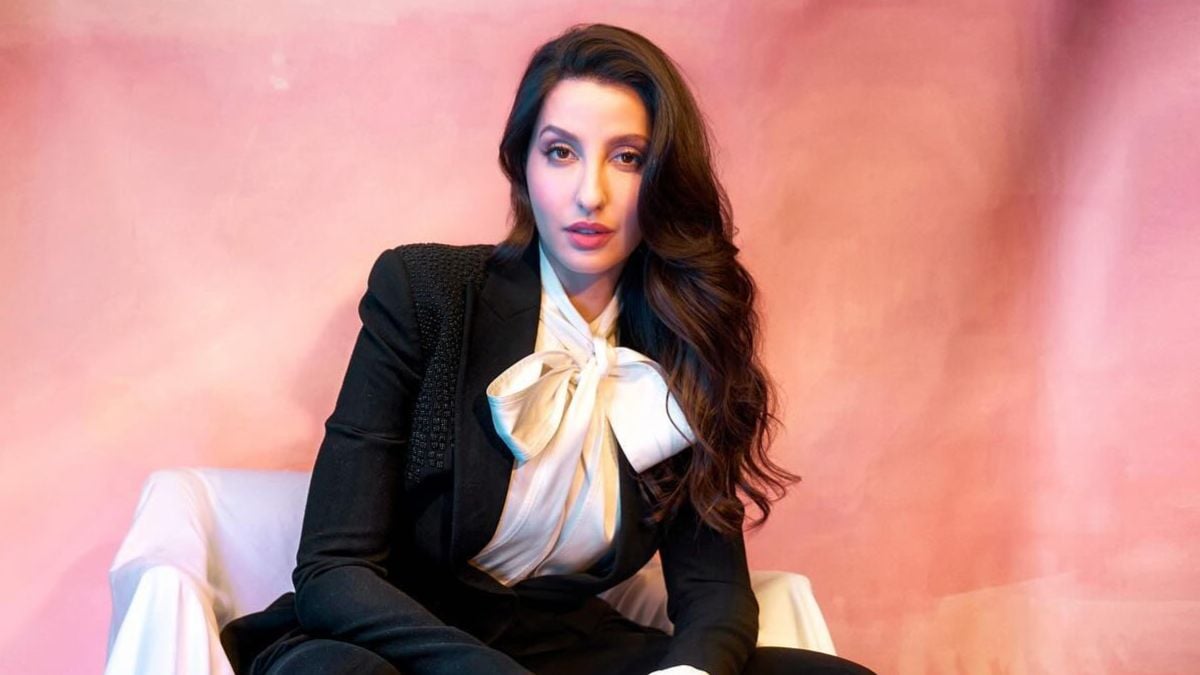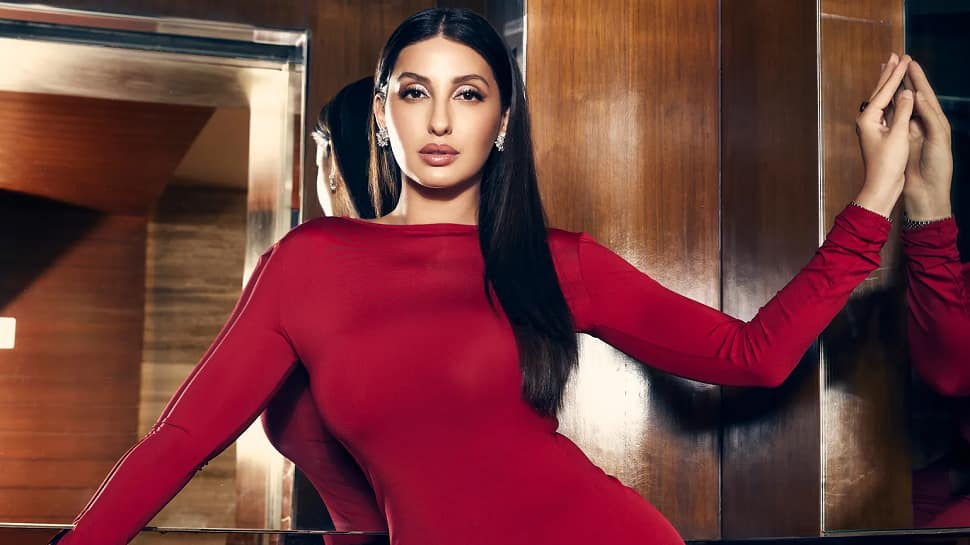In the luminescent world of Bollywood, where every step and statement casts a shadow far and wide, Nora Fatehi, a Canadian dancer and Bollywood actress has twirled into a storm of controversy not with her feet, but with her words.
This idea of I don’t need anybody. Feminism. I don’t believe in this s***t,
Nora Fatehi.
Known primarily for her hypnotic dance moves in Bollywood hits such as ‘Dilbar’ and ‘O Saki Saki,’ Fatehi recently sparked a fierce debate with her remarks on feminism, causing ripples across social media platforms and dining table discussions alike.
The podcast where Fatehi’s comments stirred up controversy
It was on Ranveer Allahbadia’s podcast where actress Nora Fatehi voiced her skepticism towards feminism, a movement rooted in the quest for gender equality. Her words, ‘This idea of I don’t need anybody. Feminism. I don’t believe in this s***t,’ and her assertion that feminism has ‘f**ked up our society completely’ left many fans and critics stunned. Fatehi’s critique extended towards the modern dynamics of gender roles, which she believes should not discard the traditional structures of male providers and female nurturers.
‘The idea of being inherently, completely independent and not having to get married and have kids and not having the male and female dynamics at home where the man is the provider, a breadwinner and the woman is the nurturer. I don’t believe in people who think that’s not true. I think women are nurturers, yes, they should go to work and have their own life and be independent but to a certain extent.’ she said.
It was on Ranveer Allahbadia’s podcast where actress Nora Fatehi voiced her skepticism towards feminism, a movement rooted in the quest for gender equality.
‘They should also be ready to take on the role of being a mother, a wife and a nurturer. Just like a man should be ready to take the role of being a provider, a breadwinner and a father and a husband. We call it an old-school, traditional way of thinking. I call it the normal way of thinking. It’s just that feminism f***** it up a little bit. We are all equal in more sentimental things but in societal things, we are not equal. Feminism inherently, on the base level, is great. I also advocate for women’s rights, I also want girls to go to school. However, when feminism becomes radical, it becomes dangerous for society.’ she further stated.
Fatehi’s assertion that women should embrace being wives, mothers, and homemakers alongside their professional endeavors points towards a longing for a world where traditional and modern roles blend rather than be in conflict. However, her comments also suggested a limitation on how far women should pursue independence, a stance that has ignited accusations of endorsing a regressive mindset.
The impact of stardom on public discourse: the weight of words
Celebrities wield an extraordinary influence on their audiences, shaping opinions and sparking debates with every public utterance. Nora Fatehi, as a celebrated figure in the entertainment industry, especially professionally, when she is riding high on the success of her latest film, Madgaon Express operates within this realm of influence where her words have the power to affect how issues as critical as gender roles and feminism are perceived by the masses.
Social responsibility: a forgotten choreography?
In an era where celebrity statements are dissected with voracious interest, the responsibility they carry is monumental. When they speak, they do so not just to an audience that listens but to one that often follows. The controversy surrounding Fatehi’s remarks brings to the forefront the delicate balance celebrities must maintain: expressing personal beliefs while fostering a constructive dialogue on sensitive issues. The debate is not just about what is said, but how it’s said and understood, reminding those in the limelight that their influence can be both a beacon and a blaze.
Backlash and rebuttal on her statement
Following the backlash, Fatehi clarified her stance, distinguishing her critique as targeted towards ‘radicalized feminism, toxic feminism, and extremism of gender roles.’ Her defense points to a nuanced view, albeit one that got lost in the blunt expressions of a podcast conversation.
In her reply to the user, who criticised her for having a ‘surface level of understanding about feminism‘, She wrote that she talked about, ‘radicalized feminism, toxic feminism and extremism of gender roles.’ Since her remarks about feminism on the podcast became widely known, she has faced a lot of criticism, according to a report.
This clarification, however, did little to douse the flames, with critics arguing that her understanding of feminism might still be superficial and misinformed.
The controversy surrounding Fatehi’s remarks brings to the forefront the delicate balance celebrities must maintain: expressing personal beliefs while fostering a constructive dialogue on sensitive issues.
One poignant online comment on platform ‘X’ (formerly known as Twitter) highlighted the irony in Fatehi’s perspective: ‘Women’s arguments for being against feminism are so ironic. They are always like: I don’t need feminism because I can vote, I feel safe, I get equal pay, I feel like an equal member of society. Glad you’re comfortable because the only reason you’re in that position is, listen up, because of feminism.’
Another user highlighted the common rebuttal to feminism, emphasising that historical achievements like voting rights for women predate the movement. They assert that the original intent of fighting discrimination was not to promote hatred towards men, contrasting it with modern radical feminism. They agree that radicalisation has negative societal impacts, particularly affecting women who become embroiled in hatred.
Moving forward: the dance continues
As the dust settles on this fervent debate, one thing remains clear: the conversation around feminism and gender roles continues to evolve, propelled by voices from all corners of society, including those of celebrities like Nora Fatehi. Whether one agrees with her or not, her comments have catalysed a broader discussion about the role of feminism today—its achievements, its misinterpretations, and its future.
In the world of constant scrutiny that celebrities inhabit, each word they utter reverberates beyond the echo chambers of their immediate surroundings, challenging them to strike a balance between personal belief and public responsibility. As Nora Fatehi continues to navigate her path through both dance and dialogue, her journey underscores the ongoing challenge faced by public figures: to lead conversations with both insight and sensitivity.
Accountability under spotlight: the public’s role in shaping celebrity influence
In a landscape where celebrities can reach millions with a single post or interview, the public possesses a profound ability to hold these influential figures accountable for their statements. As audiences consume the content created by stars like Nora Fatehi, it’s essential to remember that while celebrities can guide societal conversations, they can also be challenged and critiqued. When public figures speak on issues such as feminism, the response from the public can serve as a powerful reminder that their influence is not unilateral.
This dynamic interaction ensures that if celebrities propagate ideas that are outdated or controversial, there is a mechanism for feedback and correction. The audience’s role in questioning, critiquing, and engaging with these statements ensures that the discourse remains vibrant and progressive. By doing so, the public not only shapes the careers of these celebrities but also the cultural narratives that flow from their platforms.
It’s a form of democratic engagement in the cultural sphere, reinforcing the idea that in a world quick to broadcast opinions, careful listening and thoughtful response hold equal power. This engagement is crucial in shaping a society that reflects diverse viewpoints and values, ensuring that influence is balanced with insight and accountability.







